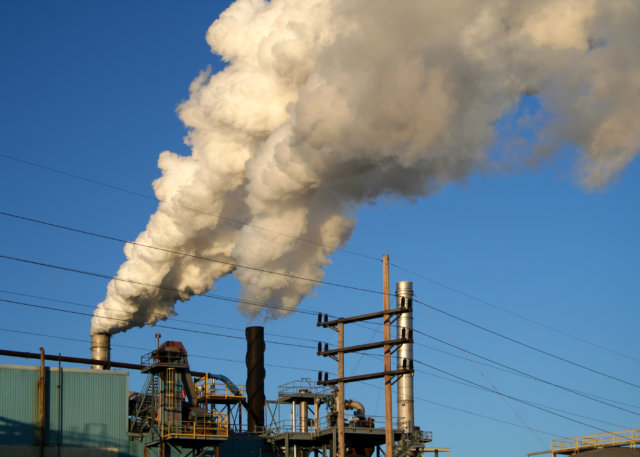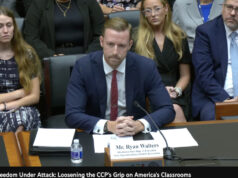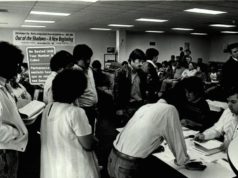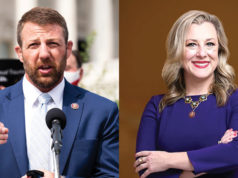I’m about to finish my M.A. thesis at OU. I’ll spare you the details, but part of it deals with how Austria-Hungary developed an industrial economy in the 19th century.
Austria and Hungary were governed basically independently of one another, but they shared the same currency and had to negotiate common trade policy. Hungary was largely rural, dominated by wealthy landowners who wanted to protect their agricultural profits. At the same time, Austria was trying to build an industrial economy that produced high-value equipment and consumer products. For a variety of reasons, Hungary usually came out on top in trade negotiations, which meant that, to protect Hungarian landowners, Austria-Hungary had high tariffs on agricultural products from other countries.
How did other countries respond? They placed tariffs on Austria’s high-value goods, damaging the Austrian economy and stunting Austrian economic growth for decades. Meanwhile, Hungarian landowners made out like bandits, feeding Austria’s captive market while Austrian consumers paid much more for food than the Germans or French.
Tariffs didn’t work then. The tariffs that Trump announced last week won’t work now.
Trade wars neither ‘good’ nor ‘easy to win’
When one country raises tariffs, it is in the fundamental interest of other countries to respond. The European Union – the largest trading bloc in the world and the only economy larger than the U.S. – will not take this lying down. That means slapping new tariffs on a variety of typically American products, like Kentucky bourbon and motorcycles, among other things. Jim Beam and Harley Davidson are based in Kentucky and Wisconsin, respectively, which just happen to be the home states of Republican Congressional leaders. What an odd coincidence.
Trump, in announcing these tariffs, tweeted on March 2 that trade wars are “good” and “easy to win.” Remember that weird sound you heard later that afternoon? That was the collective cry of anguished economists, historians and political scientists, for nothing could be further from the truth.
The BBC produced a nice summary explaining why, in this case, Trump is wrong:
- Steel and aluminum jobs won’t make a magical comeback. The Pittsburgh of the 1930s, with its “satanic mills” and soot-covered buildings, has long since disappeared.
- Prices will increase for U.S. consumers. If you’ve bought beer in a can, flown on an airplane, buy groceries or plan on buying a car soon, congratulations: The cost of that car could rise a few hundred dollars, and that’s before sales tax.
- Tariffs will hurt our allies. As noted above, they won’t accept them without consequence.
- Finally, China is the No. 1 steel producer. They dump it onto the market, but the United States buys very little of it. Most of our imported steel comes from Canada and Brazil, not China. So slapping tariffs on steel will have very little impact on China. The President could have asked his trade advisers to read their own administration’s report to figure out where we buy our steel.
Consequences already unfolding
The consequences of the President’s decision are already with us, as a Swedish appliance maker has stopped an expansion of its plant in Tennessee. It doesn’t even matter that all the steel they use comes from the U.S., tariffs will raise prices on the U.S. domestic market, as supply tightens and demand for domestic steel increases. But there simply isn’t enough domestic steel production to meet that demand. According to the American Iron and Steel Institute, the U.S. produced 86.5 million tons of steel in 2016. Domestic demand, however, was around 103.6 million tons.
U.S. Steel Corporation, the giant of Pittsburgh, had its stock downgraded the day after these tariffs were announced. Tariffs the President previously announced on washing machines and solar panels have already had an effect — killing jobs in the United States and halting investment in manufacturing.
As recently as Monday, a new study by The Trade Partnership revealed estimates the new steel tariffs will cause the net loss of some 146,000 jobs — and that’s before factoring in the effect of retaliation by our trading partners. The actual number of jobs lost and working people made much worse off will be significantly higher.
Trade war will produce only losers
As Paul Krugman reminded his readers on March 3, a trade war will produce only losers, including and especially farmers in Iowa or Oklahoma who make their living exporting soybeans around the world. Trade deficits are complicated and not necessarily bad. Indeed, they can even be seen as a good thing, but they’re certainly not a measure of “winners” and “losers,” as the President mistakenly believes.
The only way to reduce our trade deficit (which isn’t necessarily a bad thing) would be to crash the economy. Cutting our deficit or bringing back mystical jobs has always been economic hucksterism. It was in 2015, and it hasn’t gotten any better since. The jobs the President claimed he would be able to bring back are gone forever. The President’s own voters, some of whom may be cheering this decision, will lose. Again. As they did in the tax bill. As they did in the President’s attempts to kill Obamacare. And they’ll keep losing as long as he’s in office.
Fair trade increases peace
In the days before the election in 2016, I wrote that “stronger together” isn’t just a campaign slogan, it’s a way of thinking about the world. But “America First,” proclaimed on the steps of the U.S. Capitol on a cold January day in 2017, is a false promise. “America First” means America alone. It means an international system that is more dangerous as we retreat from the world and authoritarian nations like China seek to fill in the gap. We should, instead, seek President Kennedy’s peace. Not merely peace for America but peace for all.
Fair and equitable trade is a tool through which meaningful and lasting peace can be achieved. Such trade is achieved through equitable trade agreements like the Trans-Pacific Partnership. Raising barriers, building walls and introducing punishing tariffs, however, will hurt us all.
In a trade war, there are no winners, only losers.






















